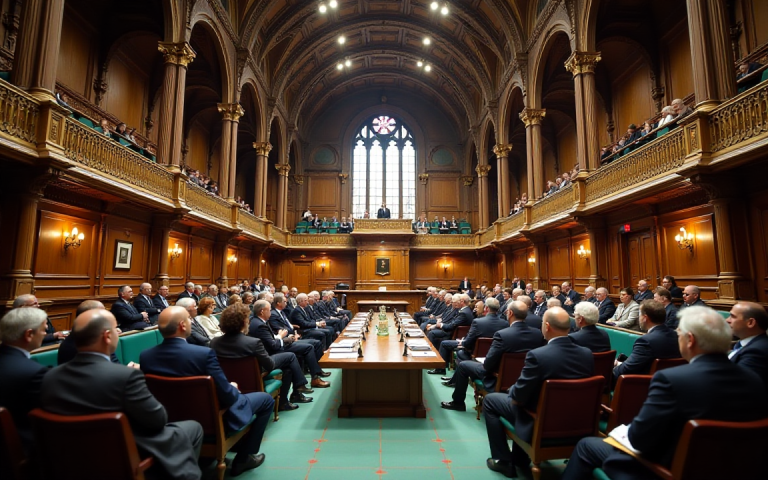UK Prime Minister Keir Starmer is navigating a growing rift between financial market demands and political pressures within his own Labour Party, following a turbulent week that rattled investors and tested the stability of his government’s fiscal policy.
The tensions came to a head on Wednesday when Chancellor of the Exchequer Rachel Reeves appeared visibly upset in Parliament following a Labour rebellion against proposed welfare spending cuts.
Investors interpreted the episode as a sign of potential instability in the government’s fiscal stance.
UK bonds, equities, and the pound all fell sharply, though the selloff later eased after Starmer publicly reaffirmed his support for Reeves.
While Reeves attributed her reaction to a personal matter, the incident underscored the challenges facing Labour’s leadership as it attempts to uphold its commitment to tight fiscal rules — a stance aimed at maintaining investor confidence after past turmoil in UK debt markets.
The government is confronting a budgetary shortfall that could exceed £30 billion ($41 billion) heading into the autumn budget.
Investor concerns resurface post-Truss era
Memories of the UK bond market meltdown triggered by former Prime Minister Liz Truss’s unfunded tax cuts in 2022 loom large.
Truss’s brief premiership ended after just seven weeks, toppled by market panic over fiscal sustainability.
That legacy continues to influence investor sentiment, particularly when there are signs of political resistance to spending discipline.
Market analysts warn that further borrowing without a clear strategy for growth or fiscal consolidation could provoke renewed volatility.
“More borrowing cannot easily be digested by markets without a credible plan for how it delivers growth,” Helen Thomas, CEO of consultancy Blonde Money, told Bloomberg.
Adding to concerns, the Bank of England is gradually unwinding its holdings of government bonds purchased during the financial crisis and the pandemic, reducing a source of price support in the gilt market.
The investor base has shifted toward hedge funds and short-term players, making UK debt more vulnerable to sudden swings in sentiment.
Global dynamics are also contributing to the unease.
With debt loads rising worldwide and politics becoming more fractious, markets have periodically tested governments’ resolve.
The UK is particularly exposed, given its reliance on external financing and recent political instability.
Labour’s fiscal dilemma
Inside Labour, Chancellor Reeves has become the face of fiscal restraint, committed to rules that require day-to-day spending to be fully covered by tax revenues.
However, her efforts have met resistance from within the party.
Labour MPs successfully pushed back on cuts to disability benefits and previously forced a U-turn on winter fuel subsidy rollbacks.
These internal tensions have raised questions about whether the government can maintain its fiscal discipline while meeting public service demands and avoiding tax hikes.
Labour had pledged during its election campaign not to raise major taxes, hoping instead that growth would improve public finances.
But that assumption is being tested amid signs of an economic slowdown.
Chris Curtis, a Labour MP and Starmer ally, warned of the political risks of failing to make tough fiscal decisions.
He said continued divisions could alienate voters and open the door for populist rivals like Reform UK, led by Nigel Farage, which has gained traction by promising tax cuts and benefits for lower-income households.
“One year on since the historic election victory, we are facing a pretty stark choice,” Curtis said. “If we duck the hard calls, then it’s a Farage administration in 2029 — and likely a deeper political and economic crisis will follow.”
The post UK government faces market jitters and political rebellion amid fiscal tensions appeared first on Invezz

